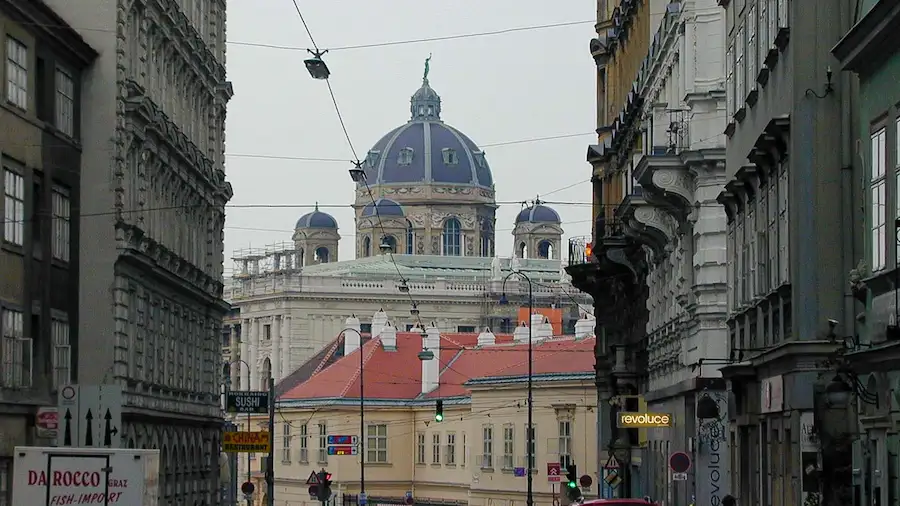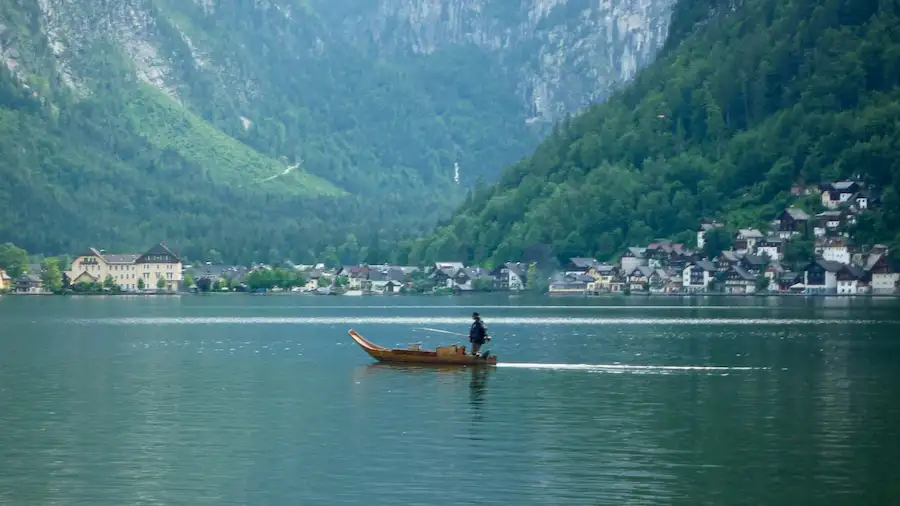Austria is a land of mountains, thermal spas, lakes and fine wine. It was as if they made this sliver of Europe into a wonderland of natural beauty for the traveler to recharge, the "pursuit of pleasure: the US Constitution ensures. From the big, historic city of Vienna to remote lakes like Hallstatt, here's the way to enjoy the richness of Austria.
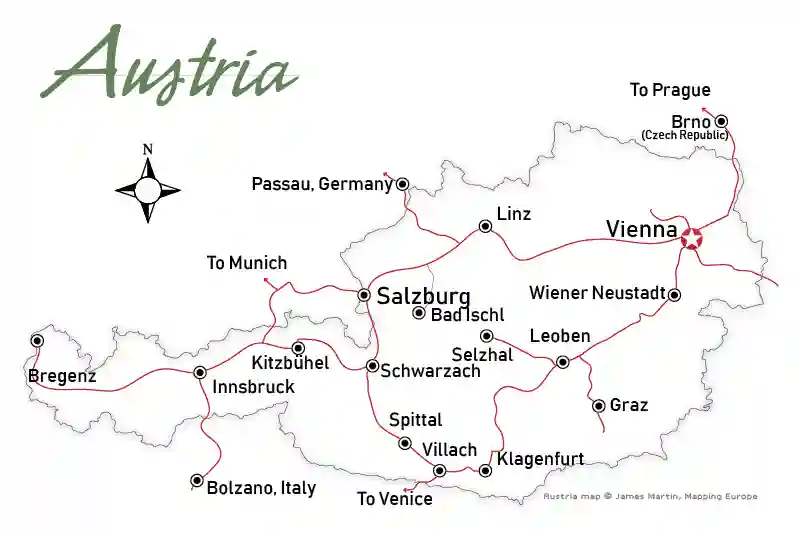
Austria Travel Essentials
Language
The primary language spoken in Austria is German. Dialects are spoken throughout Austria: Wienerisch in Vienna, Tirolerisch in the Tirol, and Volarlbergerisch in Vorarlberg. In major tourist centers, English is spoken widely.
Restaurants in Austria
You'll have a wide variety of eating places, including coffee houses, heurigen (wine bars) and pubs, in Austria. In general, Austrian restaurant food and service is remarkably well done, and not all of it is as heavy as you might expect. Still, you can dine on traditional Schnitzel (thin cut, usually of veal, breaded and fried) and Wiener Backhendl (chicken).
To test if a Wiener Schnitzel is up to par, it can be sat upon in white trousers and should not leave a grease mark. This course of action is recommended only for brave souls with unlimited resources for buying trousers.
A service charge of 10-15 percent in included in hotel and restaurant bills. Many people add 5% for good service. Attendents get a Euro or so, and taxi drivers expect 10 percent.
Getting Around Austria
The Austrian Federal Railways (ÖBB) expertly runs a network of 5700 km of rail lines with a 95% on-time record. Smaller companies run lines on alpine routes. There are lines running only in the summer for tourists as well.
The major routes and ticketing information are found on our Austria Rail Map.
Scenic and Historic Rail Routes
The mountainous Austria offers quite a few opportunities for scenic train routes. Our favorite train routes through Austria are shown below in red on each map.
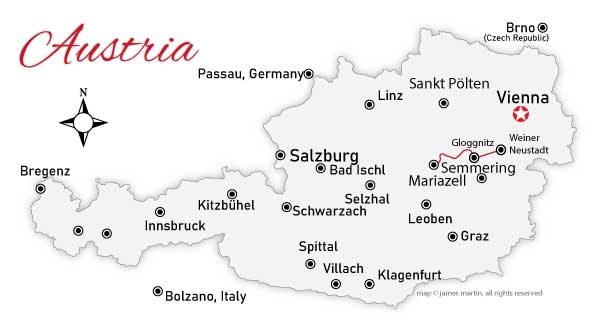
Semmering Rail Road
Semmering is home to a museum of the valley railroad, which runs from Semmering to Glognitz and goes on to connect to the Urban system at Weiner Neustadt. The town and the area it passes through is a UNESCO world heritage site. There is also a hiking trail that follows the path of the train.
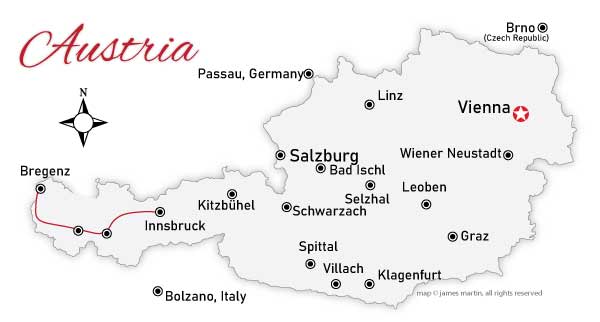
Arlberg Rail Road
Opened in 1884, he Arlberg Railway is the main line between Switzerland and Austria (you can see on the map that it ends its Austria section in Bregenz on Lake Constance (Bodensee). Opened in 1884, it's one of the highest-altitude standard gauge railways in Europe.
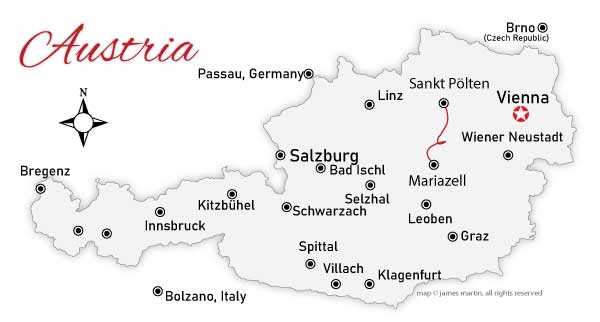
Mariazell Rail Road
"From the regional capital St. Pölten through the picturesque Pielach Valley and the ÖTSCHER:REICH region to the pilgrimage destination of Mariazell, crossing 19 viaducts and passing through 21 tunnels..."
Wellness Spas in Austria
Austria is well known for its spas. It all starts with harnessing all those hot springs gushing from the Alps. You can plunge into thermal water in an arena of fresh Alpine air. the water and fresh air has been a "cure" sonce ancient times when folks sought them out. Read more about them: Spa and Wellness in Austria
Driving in Austria
General Speed Limits (unless posted otherwise): 50 km/h in towns, 100 km/h on highways, 130 km/h on motorways.
Driving on Austria's motorways requires the purchase and display of a "vignette" on your vehicle. These days you can buy on online. Don't even think about getting on the Autobahn without one; the fines are quite high and the police eager to find the scofflaws. Find out more about the Austrian Vignette.
Wearing seatbelts is compulsory in Austria.
Austrian Airports
There are airports at Vienna, Linz, Graz, Salzburg, Innsbruck, Klagenfurt.
Austria Weather and Historic Climate Charts
The weather in Austria varies with altitude. For a map with information on historic climate of Austria, see Austria travel weather.
Austria Pictures: Urban and Rural
